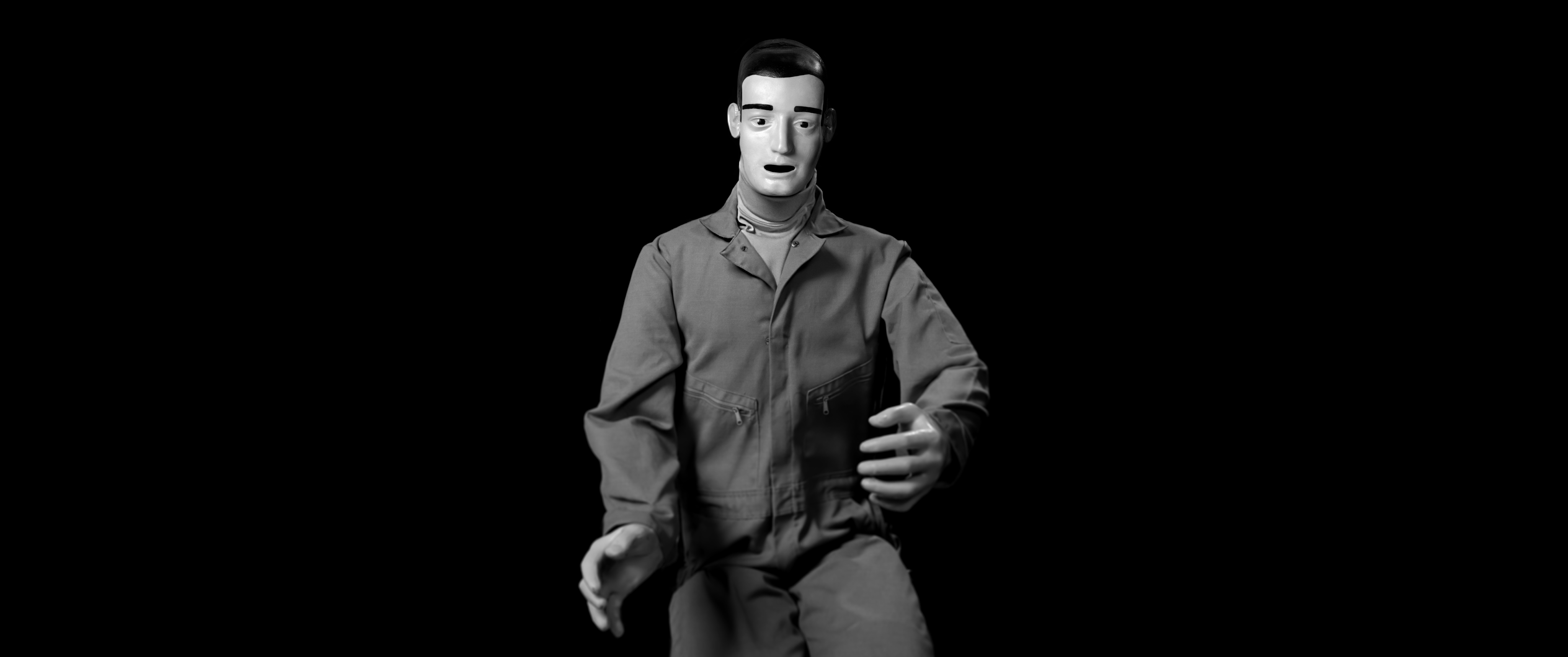Visitors
Opens Fri., Feb. 7 at Cinerama. Not rated. 87 minutes.
Shot in super-high-def black-and-white digital video, this is the latest state-of-the world doc from Godfrey Reggio (Koyaanisqatsi, etc.), and he doesn’t like what he’s seeing. He also doesn’t like how we’re seeing the world, which increasingly means small, flat screens held in our hands and laps. Where’s the grandeur, the awe, the majesty? Has all the numinous wonder of nature been replaced by Facebook and Twitter? And another thing—you damn kids get off my lawn!
You would call Visitors a film of ideas if it had any. Absent any narration, as usual for Reggio, the film presents a succession of somber images that eventually settles into cliche: a gorilla’s face, an abandoned amusement park, a giant hand manipulating a computer mouse, sports fans watching a game in slo-mo, a mangrove swamp, an albino posed between two black people (yes, really), the lunar surface, a New Orleans cemetery, and so on. (Also s usual for Reggio, Philip Glass supplies the score.) But how many times must we watch time-lapse shadows crawl across a building’s facade? (That edifice’s Latin inscription, Novus Ordo Seclorum, translates as “new order of the ages”—which you’ll also find on the dollar bill, beneath the all-seeing Illuminati pyramid eye. Make of that what you will.) We study the faces of mankind individually, like Martin Schoeller portraits, then in teeming crowds. It’s like scrutinizing strangers on the bus. To fight boredom, you keep hoping you’ll recognize someone you know.
Visitors moves in a structure along with Glass’ three symphonic movements, and I prefer the music. The score is often Coplandesque in its thrumming harmonies, full of woodwind drones and plangent timpani clusters; oboes erupt in unison, interrupted by pizzicato strings. In a film that’s intentionally repetitious, full of echt profundity and audience implication, Glass at least escapes Reggio’s banal image sequencing. If Visitors argues for a more authentic, unmediated way of seeing the world, the music allows us to imagine an unseen world. Close your eyes, and it’s like Reggio forgot to take off the lens cap.
bmiller@seattleweekly.com








